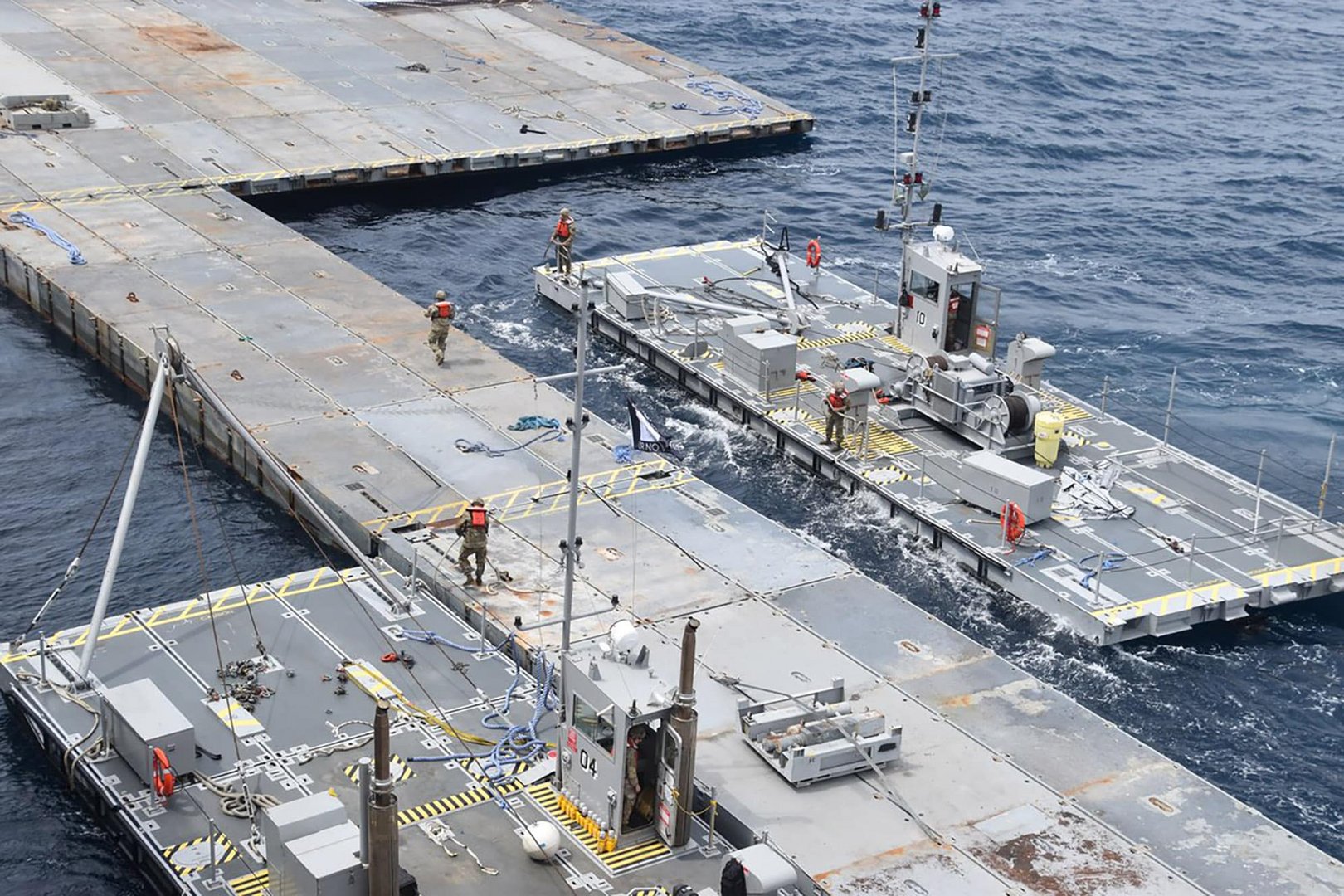The next shipment of humanitarian aid to Gaza from Cyprus through the Amalthea initiative is ready to depart “as soon as the United States give us the green light”, President Nikos Christodoulides said on Tuesday.
He said the jetty being constructed off the coast of Gaza by the US will be complete on Thursday, and that he would also discuss the matter with European Commission President Ursula von der Leyen and with British Prime Minister Rishi Sunak.
Von der Leyen is set to be in Cyprus on Wednesday and will conduct a joint visit to Lebanon with Christodoulides on Thursday.
Christodoulides and Sunak held a telephone conversation on Tuesday afternoon, with Christodoulides informing him about progress regarding the Amalthea initiative.
He also informed the British leader about the European Union’s stance regarding its relations with Turkey and matters regarding migration.
Christodoulides added that the government is “doing all the preparatory work, especially with the US, the United Arab Emirates, and the European Union, to restart this humanitarian aid mission.”
He had hailed a “mission resumed” on Saturday following the setting sail of the aid ship the Jennifer from Larnaca towards Gaza the previous night.
The aid from the Jennifer arrived at the Israeli port of Ashdod on Sunday, and was due to be transported to Gaza over land.
The next shipment will consist largely of aid collected in Larnaca following a call to arms by the Cyprus employers’ and industrialists’ federation (Oev) on Friday, asking for its members to send aid to the port by Tuesday morning at the absolute latest.
Oev director general Michalis Antoniou told the Cyprus Mail on Friday that “it is looking like a ship will set sail on Tuesday.”
While that date may have been pushed back somewhat, current indications suggest that the next departure will be imminent, especially given the fact that the jetty is nearing completion.
News website Reuters reported on Monday that the jetty had cost a total of $320 million (€298m) to construct, and that around 1,000 US servicepeople had been involved in its construction, most of whom are from the US Army and the US Navy.
That cost is around double that of original estimates, according to US Senator Roger Wicker.
Wicker, a Republican from Mississippi, said “this dangerous effort with marginal benefits will now cost the American taxpayer at least $320m to operate the pier for only 90 days.”
“For every day this mission continues, the price tag goes up and so does the level of risk for the 1,000 deployed troops within range of Hamas’ rockets,” he said.
The jetty’s potential placement has also been a cause for concern among some quarters, with British newspaper The Guardian having reported on Wednesday that the jetty’s placement may be too far south to help alleviate the “very high” risk of famine in the northern part of Gaza.
The north of Gaza, including Gaza City, has been effectively cut off from the rest of the strip by a military road constructed by the Israeli Defence Force which connects Israel with Gaza’s coast, known as the Netzarim corridor.
As such, if the jetty is placed south of the Netzarim corridor, any aid sent towards Gaza City and the rest of the north of the strip will still have to pass through an IDF checkpoint. This would arguably defeat the point of shipping the aid directly to Gaza.







Click here to change your cookie preferences